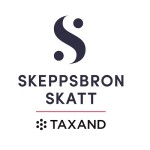In the 2013 Star Trek movie, the evil but genius Khan said: “You think the world is safe? It is an illusion.” While the character is slightly problematic, the quote is a perfect description of the current situation regarding intra-group agreements in Sweden.
Intra-group agreements are very often promoted by tax practitioners, and in some cases even required by domestic law, to the extent that templates are provided for a reasonable price to be used throughout a multinational company group. Using such templates may give a sense of safety for the group and not much thought is given to how to adapt or adjust them. This article explains why such a feeling of safety may be an illusion due to the very strict case law in Sweden.
The aim of intra-group agreements
Intra-group agreements can be problematic, but it should also be stressed that – implemented correctly – these agreements are highly beneficial. Intra-group agreements can:
Show and clarify intentions;
Provide a clear risk allocation between the parties; and
Present how functions and assets are used and allocated.
One could ask why certain agreements have become important for tax agencies throughout Europe. Intra-group agreements are agreements between two parties that have the same interest at hand, namely the interest of the overall wellbeing of the group. It is very unlikely that a dispute would arise between the two companies, and the intra-group agreements could be seen as a formality rather than a legally binding document. The difference to external agreements is obvious, as these agreements are the result of extensive negotiations.
That said, the agreement should be the starting point for any transfer pricing (TP) analysis, according to the OECD Transfer Pricing Guidelines 2022 (OECD TP Guidelines). It is only when the actual circumstances differ from what is stated in the agreement that the parties’ actions and risks should prevail, and the agreement should be discarded.
While Sweden follows the OECD TP Guidelines, intra-group agreements have been given a very specific status in Sweden owing to recent case law. As such, intra-group agreements can provide negative lock-in effects for a company if they are not carefully drafted.
The Swedish situation
There are several court cases relating to intra-group agreements, with two of the most influential Swedish ones presented here, namely the VSM and the Nobel Biocare cases. The cases were published by the Administrative Court of Appeal and the Supreme Administrative Court in 2017 and 2016 respectively. Even though these cases have been around for a few years, their importance has grown considerably as several groups are now reviewing and/or implementing their new intra-group agreements, for example due to COVID-19 adjustments and the discontinuation of the Interbank Offered Rates (IBOR).
VSM Group
In 2017, the Swedish Tax Agency (STA) initiated an investigation of the VSM Group [Case no. 2038-2041-15]. The Swedish company VSM Group AB was the headquarters with distributors in, e.g., the US (VSM Distribution) and Germany. The group also had a logistics company in the US, providing logistics services. (The logistics services are not of relevance for this article and therefore not discussed further.)
VSM Group had intra-group agreements in place stating that the VSM distributor should earn an operating margin of 3%. The group also had a benchmark showing that a 3% operating margin was within the interquartile range (IQR) and therefore considered arm’s length. VSM Group had consistently adjusted the pricing when the VSM distributor’s result was outside the benchmarked range. However, no adjustment was made if the result was within the benchmarked range but not equalling 3%. The latter situation was questioned by the STA.
The group provided the following arguments:
Even if 3% was stated in the agreement it was not reasonable to make an adjustment to a result that was within the benchmarked range and, as such, deemed arm’s-length.
Further, since both 3% and the actual outcome were arm’s-length, the STA cannot make an adjustment since it should only be reasonable to adjust a result if it was not arm’s- length.
VSM Group also added that it had used the same principle throughout the group and had therefore not benefitted from this agreement, neither had the overall result of VSM Group AB been lower due to current application. Hence, even if the VSM distributor should have had a 3% operating margin consecutively throughout the years, VSM Group AB had not suffered any negative financial consequences due to the pricing since any positive and negative effects of the group’s transactions would even out.
The STA argued that the written agreement should be followed and that there were no terms that could be interpreted the way the company described. As such, the STA argued that even if the VSM distributor’s result was within the benchmarked range it should have been adjusted to equal 3%. Only then would the group fully adhere to the agreement.
The Administrative Court of Appeal argued that the first step in an analysis would be to study the terms and conditions of any agreements. The agreement in question was deemed clear and did not give rise to any misinterpretations. The court also stressed that the agreement was followed in cases where the VSM distributor had a result outside the benchmarked range. The court then continued by stating, “even if the parties have deviated from the intra-group agreement when the result was inside the interquartile range, it should not mean that the terms should be interpreted in another way than what is stated, not even if applied consistently” [Our translation. The quote is slightly rephrased to facilitate translation].
VSM Group AB was negatively affected by not following the agreement and the Administrative Court of Appeal reasoned that an external party would not have accepted such a situation. The result of VSM Group AB was therefore adjusted to the result that it should have had if the agreement had been adequately followed.
Implications of the VSM case
The VSM case was widely discussed, and practitioners argued that the court’s reasoning was a very strict interpretation since:
The result of the VSM distributor was arm’s-length according to the benchmark; and
The interpretation was applied consistently throughout the VSM Group over the years.
The case highlighted the importance of following and having updated intra-group agreements but also pinpointed how an intra-group agreement could give rise to lock-in effects, even if another result could be confirmed arm’s-length and the group had a consistent approach throughout the years and throughout the group.
Groups that began to review their intra-group agreements due to this case would also meet another obstacle, namely the Nobel Biocare case published the year prior.
Nobel Biocare
The Nobel Biocare [HFD 2016 ref. 45] case was seen as a turning point when it was published in 2016 due to its controversy. It concerned a Swedish company, Nobel Biocare Holding AB, which had several loans with different maturities (between 15 and 30 years) from group entities. The loans were terminated after a few years and new agreements were concluded. At the same time, the interest rates were increased by 2.5%. Both the original and new interest rates were confirmed to be arm’s-length at the time the respective agreements were entered. No other changes were implemented.
|
|
“Intra-group agreements are very often promoted by tax practitioners, and in some cases even required by domestic law, to the extent that templates are provided for a reasonable price to be used throughout a multinational company group.” |
|
|
The Nobel Biocare Group argued that a company is allowed to conclude new agreements but also to discard or renegotiate existing agreements. Further, since both interest rates were confirmed arm’s length, there were no terms or conditions that differed from what independent companies would have agreed upon.
The STA argued that the original agreement did not allow for an adjustment of the interest rate, and an external company would not have been willing to accept such a change without compensation, regardless of whether the new interest rate was deemed arm’s-length. As such, it was of little relevance that both interest rates were arm’s-length. The Nobel Biocare Group objected to such an interpretation of Swedish domestic law, stressing that it was not reasonable to compare two agreements since both were deemed arm’s-length.
The Supreme Administrative Court emphasised that it was compliant with the OECD TP Guidelines when an agreement – with arm’s-length interest rate – is replaced by another agreement with less favourable but arm’s-length terms. The question would boil down to whether an external party would have agreed to suddenly having a higher interest rate, particularly when the first agreement did not contain an interest rate adjustment clause.
Implications of the Nobel Biocare case
Theoretically, the outcome of the case could imply that an agreement containing conditions and terms that were arm’s-length at the time of the agreement could not be updated even if the initial terms and conditions with time have become outdated and non-arm’s-length.
As such, when updating intra-group agreements, one must be careful on how it is done so as to avoid the same situation as Nobel Biocare.
Nobel Biocare and VSM – implications today
At first glance, it seems that the two take-aways from the cases above are:
Do not write a mark-up or margin explicitly in the agreement; and
Always include an interest adjustment clause in loan agreements.
While the above holds true, it does not necessarily mean that no issues would arise. This is particularly true when the intra-group agreement does not adequately reflect the group’s situation and when the intra-group agreement is reviewed and updated. In these situations, an intra-group agreement can instead become a lock-in.
To illustrate, picture a situation where a company has an old intra-group agreement that it is about to review and rewrite since it does not follow the agreement anymore and deems it to be a risk – having the VSM case in mind – despite being within the IQR of the group’s latest benchmark. The mark-up mentioned in the old agreement was deemed arm’s-length when the agreement was concluded.
The company rewrites the agreement and updates the mark-up to the median of the benchmark. The mark-up is lower than the previous one. Based on the combined effects of the Nobel Biocare and VSM cases, the company is at risk for TP adjustments, (1) if it keeps status quo as the group does not follow the agreement even if it is within the IQR of the latest benchmark, and (2) if it changes the intra-group agreement to adhere to current market conditions.
It is possible to avoid the pitfalls of the situation by writing flexible agreements, one therefore needs to be careful and not always suffice with a standard agreement. This is important if the transaction is material and/or will be in place for several consecutive years. It should also be mentioned that a too-flexible agreement could instead be questioned in the country of residence of the counter party to the agreement. Again, balance is of utmost importance.
As mentioned previously, the two cases are not new, and most practitioners have adapted to these issues. However, due to COVID-19, companies have been reviewing their intra-group agreements to ensure that they are up to date and, when necessary, they have updated the terms and conditions of the agreements. When reviewing such agreements, it is, from a Swedish perspective, important to balance any adjustments due to the OECD TP Guidelines for COVID-19 with the existing case law. This is equally important when it comes to the discontinuation of the IBOR rates, since it is not yet known how the STA will act on an intra-group term that must be adjusted.
In conclusion, having an intra-group agreement is important. Keeping the agreements updated is equally important. Keeping the agreements updated and flexible has proved to be of utmost importance in Sweden. Only then can a feeling of safety perhaps be justified, despite what was mentioned in Star Trek.
Click here to read all the chapters from ITR's TP Special Focus
Mikael Jacobsen |
|
|---|---|

|
Transfer Pricing Partner Skeppsbron Skatt T: +46 73 640 91 78 E: mikael.jacobsen@skeppsbronskatt.se Mikael Jacobsen is a partner at Skeppsbron Skatt, where he heads the TP department. With over 15 years’ experience, he has worked with large and medium-sized enterprises within various business segments such as industrial, pharmaceutical, healthcare, energy and consumer goods. Mikael is commonly engaged to advice on business restructurings, planning, documentation, audit support and litigations. He also has extensive experience from assisting clients in competent authority procedures. Mikael is a graduate of Jönköping University. He often hosts lectures and seminars on TP related topics, and regularly publishes articles regarding TP matters. |
Malin Andersson |
|
|---|---|

|
Tax consultant Skeppsbron Skatt T: +46 73 640 91 39 E: malin.andersson@skeppsbronskatt.se Malin Andersson has worked as a tax advisor at Skeppsbron Skatt since 2020. Malin specialises in TP and international tax and is engaged in advising on e.g. business restructurings, planning, documentation, policies, transactions involving intangible assets, etc. Malin has experience of advising clients in all types of industry sectors. |
Janina Hägg |
|
|---|---|

|
Tax consultant Skeppsbron Skatt T: +46 73 640 91 33 E: janina.hagg@skeppsbronskatt.se Janina Hägg is a consultant at Skeppsbron Skatt, and specialises in the areas of tax and TP. She has worked as a tax advisor since 2017 and has experience from an international audit firm before she joined Skeppsbron Skatt. Janina is commonly engaged to advice on business restructurings, planning, documentation, transactions involving intangible assets, litigations and assisting clients in competent authority procedures. She has experience from advising clients within the industry sector as well as the IT and pharmaceutical sectors. Janina is a graduate of Uppsala University. Besides her work as a tax advisor, she has published TP articles in journals. |













